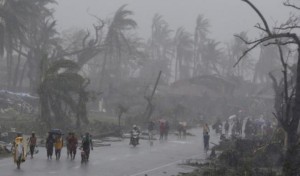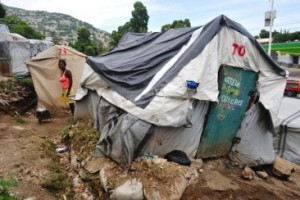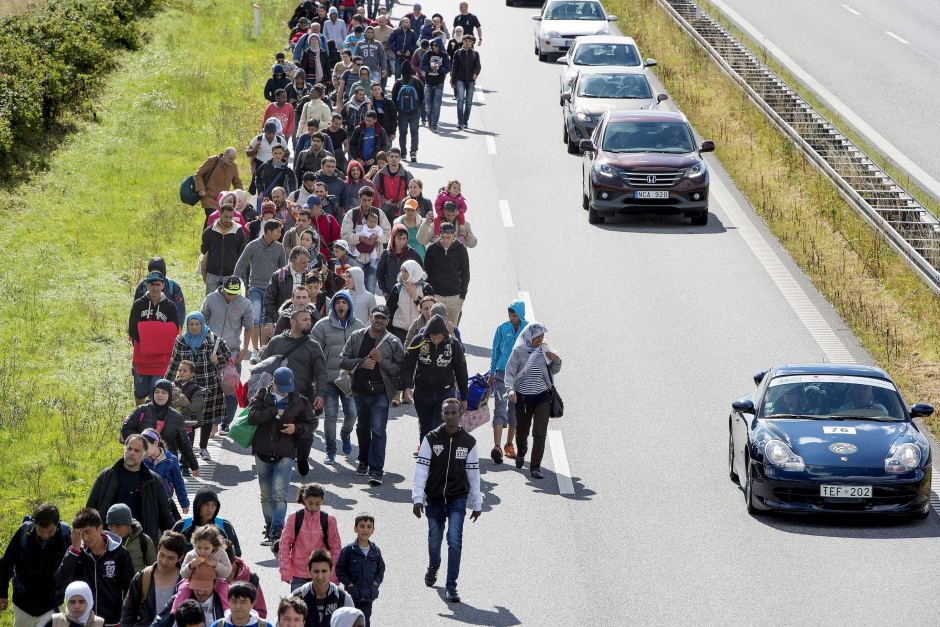The twenty-first century has been marked by countless natural disasters. Just to name a few – a magnitude 9.0 earthquake and ensuing tsunami in northeastern Japan in 2011, severe monsoon flooding that affected 17.2 million in northwestern Pakistan in 2010, and a cyclone that killed as many as 100,000 in Burma in 2008. According to the 2011 World Disasters Report, disaster deaths rose by 39 percent between 2000-2010 compared to the 1990s . The number of people affected by disasters also rose by 10 percent.
In the age of globalization, this increase in victims affected by natural disasters translates, of course, into an increase in international aid flows. Just at the start of this month, on Nov. 8, Typhoon Haiyan swept through six central islands of the Philippines, left hundreds of thousands missing, displaced or dead and sent an influx of aid into the country. The occasion is a good opportunity for us to consider the unintended effects of aid. While humanitarian aid can be incredibly beneficial in the short run, the long term effects are not intrinsically positive.

The UN estimates that more than 11 million people have been affected and about 637,000 were displaced by the tragedy in the Philippines. Initially, international aid efforts were slow to take effect, but their positive impact became evident as tens of thousands of victims receive supplies. According to the Associated Press, Patrick Fuller of the International Federation of the Red Cross said “At the moment we are ramping up a major relief effort and the supplies are coming in.”
Beyond meeting immediate needs, however, what does this humanitarian aid mean for the country?
Generally speaking, the primary objective of humanitarian aid is to save lives, alleviate suffering, and maintain human dignity. The Red Cross’ mission statement provides a clear demonstration: “The American Red Cross prevents and alleviates human suffering in the face of emergencies by mobilizing the power of volunteers and the generosity of donors.” In that sense, humanitarian aid differs significantly from development aid in that its purpose is not to transform the socio-economic structure of a country, but to help said country recover from a humanitarian crisis. In practice, however, we see that humanitarian aid, is, in fact, having important unintended effects on the development of countries hit by crises.
So what does humanitarian aid really do for a country in the long run?
Haiti provides an example of the potential long-run repercussions of aid; it’s an example that hopefully does not foreshadow the events of the Philippines. Following the 2010 Haitian earthquake, the United States sent 90,000 metric tons of American crops to the country, consisting of three-quarters of the total aid sent by the U.S. The U.S. Agency for International Development (USAID) sent these crops to Haiti as part of the Food for Progress and related Food for Peace programs run by USAID and the U.S. Department of Agriculture. While on the surface this action benefits the country, it has harmed Haiti by undermining thousands of Haitian farmers whose livelihoods were already threatened by imports of cheap rice and corn, staples of the Haitian diet.
Importing food was useful in the short run – local markets were drastically affected in the aftermath of the earthquake and could not adequately supply food to all those who needed it around teh country. However, its utility diminishes in the long run. As Chavannes Jean Bapiste, director of the Haitian farmers collective, Peasant Movement of Papay, said in an interview with Jacob Krushner, in a special for the Pulitzer Center, “After the earthquake, the country needed food to help the victims in some places. But it’s not really necessary to send to Haiti a lot of food from the United States. We received too much food, when locally it was possible to find food to buy to help the people.”

In fact, Nathan Yaffe, board member of the Haiti Justice Alliance, said, in an interview with Krushner , “If you look at the allocation of food aid after the earthquake, the fact that most of it is [Food for Progress] means that the priority for the U.S. government was exporting food from the U.S.” He also added that, “The evidence suggests that U.S. foreign aid is structured around our economic needs rather than the humanitarian needs of people we’re supposed to be helping.” The Haitian food case is not an isolated incident for the U.S., nor is the U.S. the only country to have given such types of aid.
Apart from the donor country’s capacity to use aid to serve its own economic needs, the primary problem in aid is the lack of planning that often goes into its disbursement. In the moments immediately following a crisis, it is undeniably necessary for donor countries to send large amounts of aid. However, once the affected country has recovered to some extent, the continued provision of aid requires more strategic planning. It is in this period that humanitarian aid has the most potential for unintended harm. Dato Kim Tan, the founder and chairman of SpringHill Management Ltd., told the organization PovertyCure in an interview, “When we come into a country and provide a whole load of aid in the form of grant money that a small country just can’t absorb, that has a whole load of unintended consequences to its economy.”
The case of Haiti has been but one example of the harmful effects of aid in the long run. Hopefully, the Philippines will not be another.




